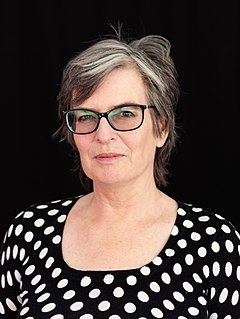A Quote by Trace Lysette
I don't have shame around where I've been or what I've done to survive to get to where I'm at in my life. When you don't have shame around something, it can't hurt you.
Related Quotes
Shame usually follows a pattern—a cycle of self-recrimination and lies that claims life after life. First, we experience an intensely painful event. Second, we believe the lie that our pain and failure is who we are—not just something we’ve done, or had done to us—and we experience shame. And finally, our feelings of shame trap us into thinking that we can never recover—that, in fact, we don’t even deserve to.
Shame has its place. Shame is what you do to a kid to stop them running on the road. And then you take the shame away, and immediately, they're back in the fold. You should never soak anybody in shame. It's the prolonged existence of shame that then flips out into destructive rage. We can't exist in that. It's like treacle.
You are an American, so you're hurt that other American citizens have been hurt, but you end up having to shoulder the shame for something that you don't even believe. There's a lot of years where Muslims have dealt with having to make themselves very small and not disrupt the flow and not - make sure that you're not noticed because, you know, deep down inside people are not really excited that you're around .
You see it is important to understand how damaged people don't always know how to say yes, or to choose the big thing, even when it is right in front of them. It's a shame we carry. The shame of wanting something good. The shame of feeling something good. The shame of not believing we deserve to stand in the same room in the same way as all those we admire. Big red As on our chests.
The best definition I've heard is that guilt is about what you've done, shame is about who you are. If something's out of my control, I don't feel shame about it, because what could I have done? If you're guilty, you can at least try to atone for it or make it better or not do it again. If it's who you are, you can't do much about it except change yourself, and that's pretty hard.




































